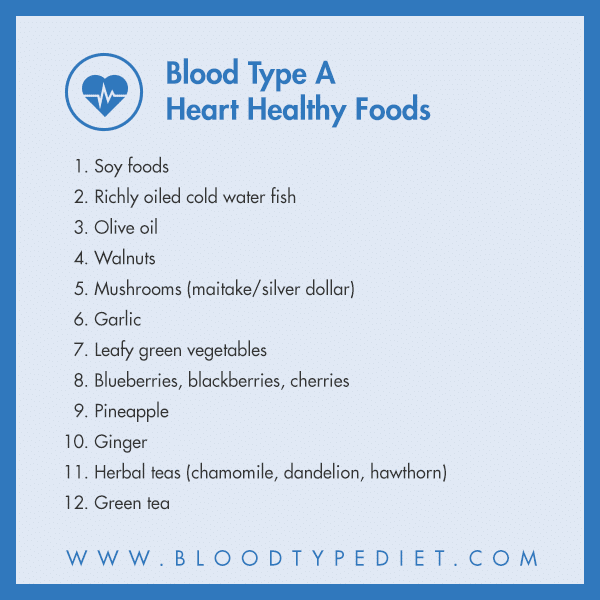The CDC reports that approximately 610,000 Americans die of heart disease every year. With rates this high, it is important to educate ourselves on the risk factors and what we can do to protect ourselves. One development that has been gaining in popularity is the use of the blood type diet in order to promote optimal heart health.
The blood type diet was first popularized by Peter D’Adamo, a naturopathic physician. Having spent his career studying medical history, genetics and anthropology. His theory stated that the antigens responsible for determining our blood type also impact the way in which our bodies digest a specific food protein called lectins.

He argued that the foods that are best for each specific blood type were determined based on when that blood type evolved during the course of human history, specifically looking at what foods early man was eating at that specific point in time. Knowing what this meant for you individually would empower you to eat the ‘right’ foods, promoting optimal health, or fall into the habit of eating the ‘wrong’ foods which would lead to both weight gain and a list of potential health problems.
Find your blood type below and learn what foods are recommended for you!
Blood Type A

If your blood type is A, you would benefit from consuming soy foods and plant sources in order to ensure that you are getting your recommended protein intake. While you shouldn’t rely too heavily on it, including a cold-water fish in your diet each week will also carry a number of benefits. When choosing your fruits and vegetables, stick with those that are high in antioxidants and fiber.
Limit your grain consumption, and eliminate wheat entirely if you currently have a heart condition, diabetes or are overweight. Red meats are hard for you to digest and should also be eliminated from your diet. While cultured dairy foods are beneficial, limit the number of fresh milk products.
Blood Type B
When selecting your meat products, choose only high quality, lean, organic meats several times a week, substituting a cold-water fish regularly. This will allow you to increase strength and energy, promote good digestive health, improve cardiac health and lower your cholesterol. Eat plenty of beneficial fruits and vegetables as well as nuts and dried fruits.
If you are not used to eating dairy products it is important that you don’t jump into them too quickly. Gradually introduce them into your diet beginning with cultured dairy foods such as yogurt and kefir.
There are a number of foods that have been found to be detrimental for those with blood type B including chicken, corn, buckwheat, peanuts, lentils, wheat and wheat-based products and potatoes.
Blood Type AB
For your primary protein sources stick with soy foods and seafood, breaking it up with cold-water fish each week. Include beneficial fruits and vegetables with every meal, especially those that are high in fiber and antioxidants.
Limit your consumption of fresh milk products as they will cause you to experience excess mucus. You should also avoid red meat as it is incredibly difficult for you to digest. While you can enjoy grains occasionally, avoid wheat products if you currently have heart disease.
Blood Type O
Stick to small to moderate portions of meat several times each week in order to increase strength, energy and your overall digestive health. For best results, prepare your meat medium to rare. Fish is also a great form of protein, providing your body with oils which have been found to lower cholesterol, improve cardiac health and support thyroid function. Alongside your protein sources, be sure to consume a lot of beneficial fruits and vegetables!
There are several foods that those with Blood Type O do not digest properly, ultimately increasing your risk of a number of health conditions including metabolic syndrome and cardiovascular disease. Limit your consumption of wheat and wheat based products, dairy products and beans.
